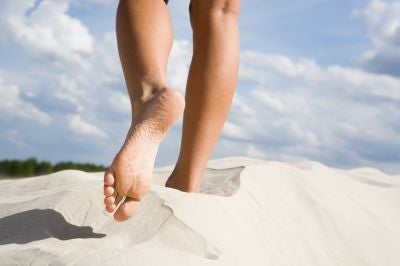Your support helps us to tell the story
From reproductive rights to climate change to Big Tech, The Independent is on the ground when the story is developing. Whether it's investigating the financials of Elon Musk's pro-Trump PAC or producing our latest documentary, 'The A Word', which shines a light on the American women fighting for reproductive rights, we know how important it is to parse out the facts from the messaging.
At such a critical moment in US history, we need reporters on the ground. Your donation allows us to keep sending journalists to speak to both sides of the story.
The Independent is trusted by Americans across the entire political spectrum. And unlike many other quality news outlets, we choose not to lock Americans out of our reporting and analysis with paywalls. We believe quality journalism should be available to everyone, paid for by those who can afford it.
Your support makes all the difference.How many calories do you burn while walking? That depends on your height and weight. And now researchers have devised a new mathematical formula to find out precisely how much energy you expend when walking.
Researchers hope their new formula will be applied to new, improved pedometers to calculate more accurate data in terms of calories burned when walking. Militaries may also find the equation handy, possibly using it to measure how many calories soldiers burn while carrying different loads, and thus how many calories they will need, said study researcher Peter Weyand, of Southern Methodist University in Dallas, Texas.
Scientists have known that shorter people, including children, use up more energy per kilo when walking, but they didn't know why. To find out, the researchers had 48 subjects, ages 5 to 32, walk on a treadmill at varying speeds. The researchers measured their metabolic rate and examined details about the way the subjects walked, such as their stride length.
The results showed that everyone, regardless of age, used about the same amount of energy for each stride they took. But because people with shorter legs take more steps to cover the same ground as those with longer legs, shorter people used more energy over a given distance.
Taller people are more economical walkers because they can take bigger steps and thereby burn fewers calories on a per-kilo basis. At the same time, tall people tend to burn more calories overall because they are generally supporting a greater mass against gravity, which requires more energy, said Weyand. Hence, a complicated mathematical formula that you can access here.
Findings were published November 12 in the science periodical Journal of Experimental Biology.
To read more about the study: http://jeb.biologists.org/cgi/content/short/213/23/i

Join our commenting forum
Join thought-provoking conversations, follow other Independent readers and see their replies
Comments